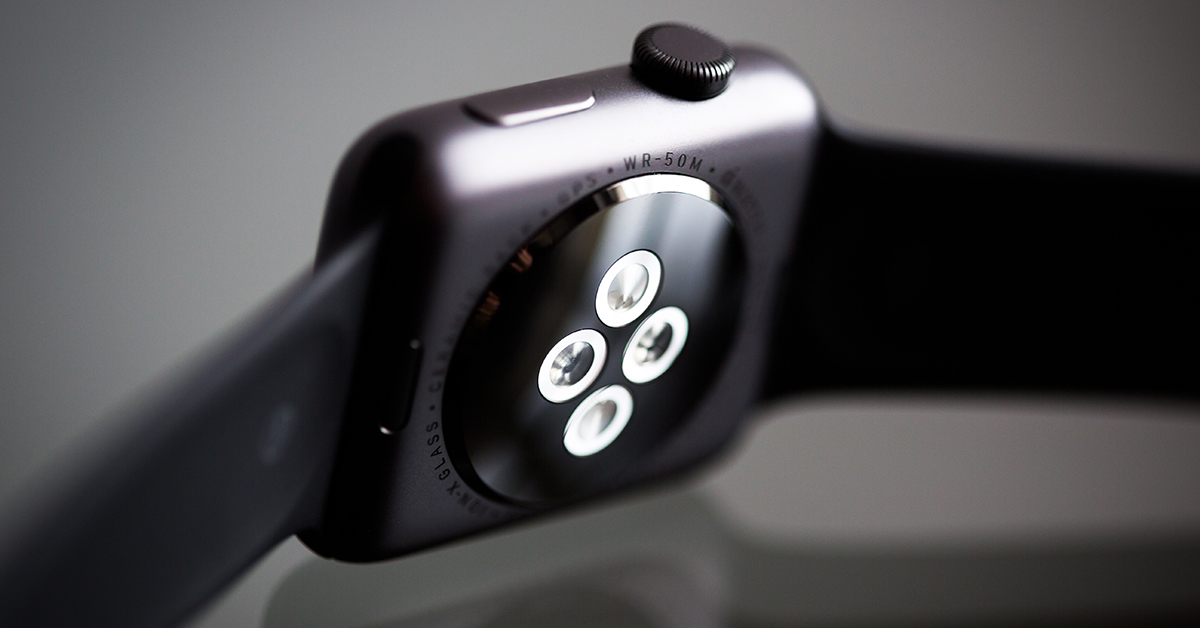Biomedical Engineering: 7 Common Questions
Biomedical Engineering is the technical and academic profession of researching, designing, building, testing and maintaining medical devices.
Medical devices themselves by and large are any mechanical or electronic product intended to alter or monitor a biological process.
Medical devices may or may not be single-use items, and may or may not contain pharmaceutical products or other chemical agents. Drugs and chemical agents themselves are not considered to be biomedical engineering products, but any support device associated with them could be. For example, an insulin delivery device, either an installed pump or a traditional insulin pen are biomedical devices, but the insulin (a drug) is not.
Biomedical devices can also be consumer-level devices, for example a smartwatch or health-tracker that monitors heart rate and other health-related biomarkers. These wearable devices have inside them technology similar to or the same as what can be found in medical devices you find in a hospital or clinic, and the engineers who helped design them would likely be biomedical engineers.



Table of Contents
- What does a Biomedical Engineer do?
- Where do Biomedical Engineers work?
- What do Biomedical Engineers earn?
- Do I have to go to University to be a Biomedical Engineer?
- Do I have to Study for a Biomedical Engineering Degree to become a Biomedical engineer?
- Are Biomedical Engineers Doctors?
- Are Biomedical Engineering and Bioengineering the same thing?
What does a Biomedical Engineer do?
Biomedical engineers can be researchers, designers and technical service personnel dedicated to the implementation of technology intended to monitor or treat biological processes.
- Research – The development of a new medical device requires dedicated scientists and engineers to conduct fundamental research into the biological process of interest, and develop proof-of-concept prototypes that can be further refined into viable medical and consumer devices.
- Design – Working with the researchers from the prototype stage the designers may be electrical, electronic, mechanical, computer/software or design engineers responsible for the look, feel and function of the physical device.
- Technical Services – When medical devices are used regularly in hospitals or clinics there is the need, and often legal responsibility to care for, audit and maintain them. Additionally some technical clinical roles such as perfusionists will be specially trained members of a biomedical engineering team responsible for the direct operation of perfusion equipment during surgical procedures such as bypass heart surgery.
All three areas of Biomedical Engineering can and often cross collaborate, and all require a college or university degree, either vocational or graduate-level. Those who develop niche interests and conduct specific research may also hold post-graduate level degrees such as an MPhil, DPhil or PhD.
Where do Biomedical Engineers work?
Biomedical Engineers work in a wide area of society. They can be found within health services, hospitals, clinics etc. in industry as contractual service engineers separately hired by health institutes, or within companies as part of larger engineering teams developing a large range of products.
Researchers often find themselves in academic positions at Universities conducting fundamental research, but could also be part of private engineering consultancies or even in law firms on intellectual property management as specialised Patent Attorneys.
What do Biomedical Engineers earn?
This is a difficult question to answer, as the different types of biomedical engineer may earn different salary ranges depending if they work in research or the health sector, compared to the same or similar roles in industry.
In the UK, an NHS employee entering at band-6 in a technical service role can start on circa £34k, rising to as much as circa £92k for a top band-8 position in a specialised technical role (rates taken as top rates from published data in 2022 www.nhsemployers.org/articles/pay-scales-202223). This is a very good rate of pay and worth pursuing if you wish to stay in a health-related role. This pay increase depends very much on training, further education and experience. In other countries similar roles will earn similar rates (adjusting for currency conversion) and sometimes maybe a lot more or less. Check with your local market to see what similar roles in hospitals and clinics may earn. You may try searching for “biomedical/medical engineer”, “biomedical/medical technician”, “field service engineer”, “hospital field service technician/engineer” for those kind of roles, but also in specialised roles requiring an extra degree of study (often a specialised Masters degree), so also search for “clinical engineer”, “clinical scientist” and “medical physicist”.
In industry, Biomedical Engineers are either recruited as Electrical and Electronic (EE) Engineers or Mechanical Engineers (depending on the main degree of the applicant and the core engineering sector a business is involved with), so don’t be disheartened if you don’t immediately see roles within private companies specifically for “biomedical engineering”.
Companies are often looking for an EE or mechanical engineer to develop medical devices, and often with companies they want to employ candidates who have a lot of flexibility and could move around, hence such roles as being advertised as suitable for either EE or mechanical disciplines. That’s not saying that pursuing a biomedical engineering degree isn’t worth it, but you may find your own searches narrowed if you only look for the term “biomedical engineering” in your job search.
Our advice is to look for any engineering role in companies who have a portfolio of medical devices or who are actively recruiting specifically in that sector of their business.
Industry positions focusing on product development and consultancy tend to range between £34k and £51k (glassdoor.co.uk) from our own general search for new starters, though a mentioned previously you may have to look for positions in general engineering roles in companies that may specialise or have a division in the health market.
In the London Area (UK) a newly qualified Patent Attorney (Associate Level) can expect a mean salary circa £52k (glassdoor.co.uk), with annual increases rising sharply with experience and seniority. There is a caveat to entering this industry though. Some firms may require a minimum of an MEng to enter their training programmes, with some even going as far as requiring a PhD for the very specialised areas they work in, and the salary on entering the training programmes will often be a lot less, somewhere in the region of £30 – £35k. Periodical exams, and the final exams are also reported to be some of the toughest in the workplace. If you can get in though, and you like writing and reading technical documents then this is a very good career to be in, six-figure salaries after 10 years as a practising attorney are not uncommon, but work hours may be long!
Do I have to go to University to be a Biomedical Engineer?
Normally yes. In the servicing field of biomedical engineering some medical device companies run their own training centres/academies where you gain internal qualifications to work on a specific manufacturer’s devices and equipment.
It is not unheard of for individuals being trained up on a vocational basis where they are released once a week to a college or university to learn practical servicing and testing skills and sitting some required exams for professional registration. This, however is not normally the norm, or roles are hard to come by or are super competitive.
If you want to be a biomedical engineer then a minimum requirement for entry level at least to the NHS will be to have a Physics, Electrical, Mechanical, or Biomedical Engineering undergraduate degree. In the UK this will be either a Bachelors (BEng) or Masters (MEng). The degree you have will also have to be accredited in order for you to partake in continued professional development (CPD) and gaining a registration with the Institute of Physics and Engineering in Medicine (IPEM – ipem.ac.uk) is normally advised (in the United Kingdom).
Physicists, engineers and technologists play vital roles in delivering our healthcare. IPEM is the professional organisation that represents this diverse workforce. They are a charity with more than 4,600 members drawn from healthcare, academia and industry (SOURCE – www.ipem.ac.uk/about)
Do I have to Study for a Biomedical Engineering Degree to become a Biomedical engineer?
The degrees most associated with biomedical engineers tend to be Biomedical Engineering, Electrical and Electronic Engineering, Physics and Maths. Though recruitment into service roles consider nearly all engineering degrees.
Biomedical Engineers (as a profession) tend to come from one of the degrees above, but specific Biomedical Engineering degrees are becoming very popular now, but may range in their names. For example you could look for degrees in Medical Engineering, Medical Physics or Bioengineering (though as discussed later, Bioengineering is often a separate type of engineering discipline that may be unrelated to the type of biomedical Engineering you might be interested in).
Another question I am often asked is “is biomedical Science considered for biomedical Engineering roles?” In my professional experience this is a no. I will explain. You should be aware that Biomedical Science is another degree field all together, and is often a type of biology-related degree, therefore key engineering principles taught on the other types of degree, such as Physics, Maths, Electronics, Mechanics, Design, computer science principles, and fluid dynamics (all core engineering concepts across all fields of engineering) will not be taught, so for that reason is not an Engineering degree, and will often not be considered for such roles. However, Biomedical Scientists themselves may become involved in product development if their speciality relates to the said development.
Are Biomedical Engineers Doctors?
Most Biomedical Engineers are not doctors. Those of us involved with research with a PhD may call ourselves doctors, but we are not (generally) medically trained.
There are however exceptions to this, and there are some very senior medical experts, clinicians and surgeons who have become involved with sensor design and data analysis through their clinical work who later styled or called themselves Biomedical Engineers.
Are Biomedical Engineering and Bioengineering the same thing?
No, Bioengineering and Biomedical Engineering are NOT the same thing. Bioengineering is normally a special branch of biochemistry involved with engineering biology directly, either through gene therapy or advanced genomics.
Biomedical Engineering is, as we have stated before, the engineering involved with creating technological solutions to diagnosis, treatment and therapy with physical devices.
It is accepted however that the terms are sometimes exchanged in the broad sense to mean roughly the same thing when being reported by the media and news outlets. This can be source of frustration for both Bioengineers and Biomedical Engineers, but largely I think we ignore it, as we often work together anyway, and have more things to worry about other than semantics!
Biomedical Engineering Articles





















